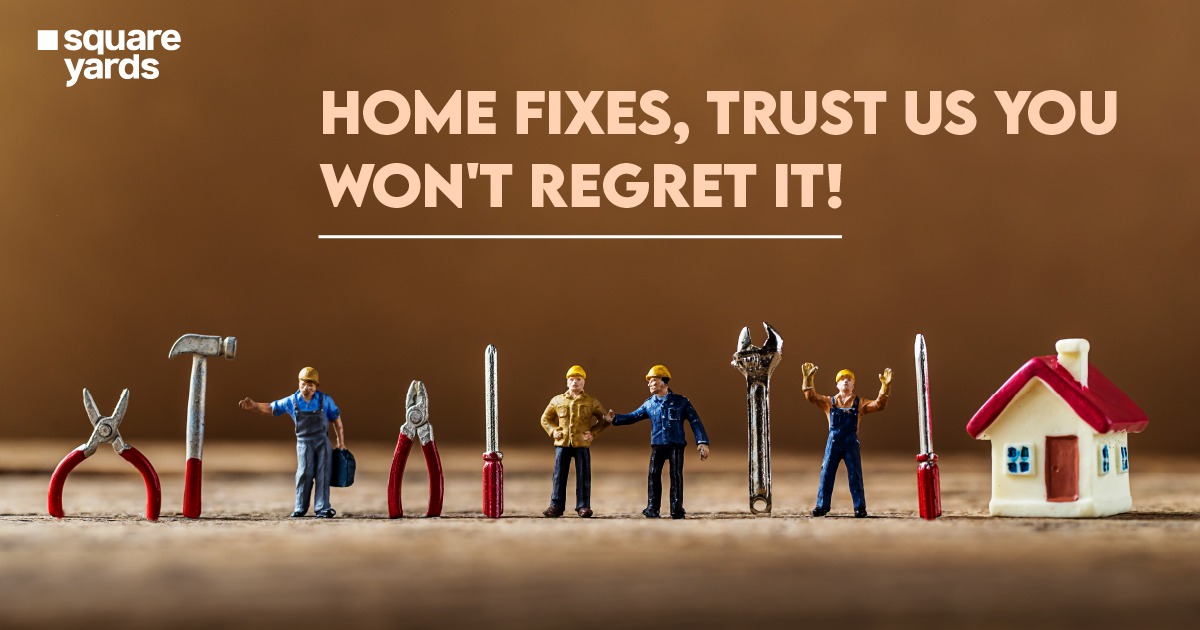Moving into a new home? Sounds exciting!!
Well, before you settle in, have you done a thorough recee of the property? If you haven’t, you are in trouble. Taking the time to have any necessary fixes and repairs completed before you move in can save you time, money, and potential headaches down the road. In this guide, we will explore the importance of addressing fixes before moving into a new home and how it can contribute to a smooth and enjoyable transition. By prioritizing fixes, you can create a safe, comfortable, and stress-free environment from the moment you step foot in your new abode.
Ensuring Safety: To Move in properly
The safety of your new home should be a top priority. Addressing fixes before moving in allows you to identify and resolve potential safety hazards. Consider the following aspects:
a. Electrical Systems: Faulty wiring, outdated electrical panels, or improper installations can lead to electrical hazards, including electrical shocks or fires. Have a professional inspect the electrical systems and make any necessary repairs or updates.
b. Plumbing Issues: Leaking pipes, clogged drains, or faulty plumbing fixtures can cause water damage, mold growth, and health hazards. Fixing plumbing issues before moving in ensures a healthy and functional water supply system.
c. Structural Integrity: Any signs of structural damage, such as cracks in walls or foundation issues, should be addressed promptly. These issues can compromise the stability and safety of the house and require professional attention.
Preventing Costly Repairs:
Addressing fixes before move-in phase, can save you from unexpected and expensive repairs in the future. By identifying and resolving issues early on, you can prevent them from worsening and potentially causing more extensive damage to your home. Consider the following areas:
a. Roofing: Inspect the roof for missing shingles, leaks, or signs of damage. Repairing or replacing a damaged roof is more cost-effective before any water damage occurs.
b. HVAC Systems: Have the heating, ventilation, and air conditioning systems inspected and serviced. Addressing any issues before moving in can prevent major breakdowns and costly repairs during extreme weather conditions.
c. Plumbing: Fixing plumbing problems like leaks or faulty fixtures before moving in can prevent water damage and the need for extensive repairs down the line.
Customization and Convenience:
Having fixes completed before move-in allows you to personalize your new home and ensures a smooth transition. Consider the following factors:
a. Painting and Flooring: If you plan to repaint or install new flooring, it's easier to do so when the house is empty. Completing these tasks before moving in saves time and effort, as you won't have to move furniture or navigate around belongings.
b. Kitchen and Bathroom Updates: If you wish to upgrade or renovate the kitchen or bathroom, having the fixes done before moving in allows you to create the space you desire without the inconvenience of working around your belongings.
c. Accessibility and Convenience: Fixing any issues related to accessibility, such as installing handrails or ramps, before moving in ensures that your home is comfortable and accommodating from day one.
Peace of Mind and Comfort:
Moving into a new home is meant to be an exciting and joyous experience. By having fixes completed beforehand, you can enjoy peace of mind and a comfortable living environment. Consider the following benefits:
a. Stress-Free Settling: Knowing that your new home is in excellent condition and free of significant issues allows you to settle in without worry. You can focus on unpacking, decorating, and making your new space feel like home.
b. Healthy Living Environment: Addressing fixes helps create a healthy living environment by eliminating potential hazards such as mold, leaks, or pests. This promotes the well-being of you and your family.
c. Long-Term Satisfaction: Fixing issues before move in, sets the stage for long-term satisfaction with your new home. By taking care of necessary repairs and updates, you're investing in the durability, functionality, and aesthetics of your property.
Conclusion
Having fixes completed before moving into a new home is a wise and proactive approach. It ensures safety, prevents costly repairs, allows for customization and convenience, and provides peace of mind and comfort. Whether it's addressing safety hazards, resolving plumbing or electrical issues, or customizing your new space, taking the time to fix any necessary aspects before moving in sets the foundation for a smooth and enjoyable transition. By prioritizing these fixes, you can create a welcoming and hassle-free environment in your new home, allowing you to fully embrace this exciting chapter of your life.
What safety concerns should I address before moving in?
Safety concerns that should be addressed include electrical issues, plumbing problems, and any signs of structural damage. Ensuring a safe living environment is crucial for the well-being of you and your family.
Can postponing fixes lead to more expensive repairs in the future?
Yes, postponing fixes can result in more extensive damage and more costly repairs. Addressing issues early on helps prevent them from worsening and causing additional damage to your home.
How can having fixes completed before moving in save me time and effort?
By having fixes completed before moving in, you can avoid the inconvenience of working around furniture and belongings. This allows you to paint, install flooring, or make any necessary renovations more efficiently.




